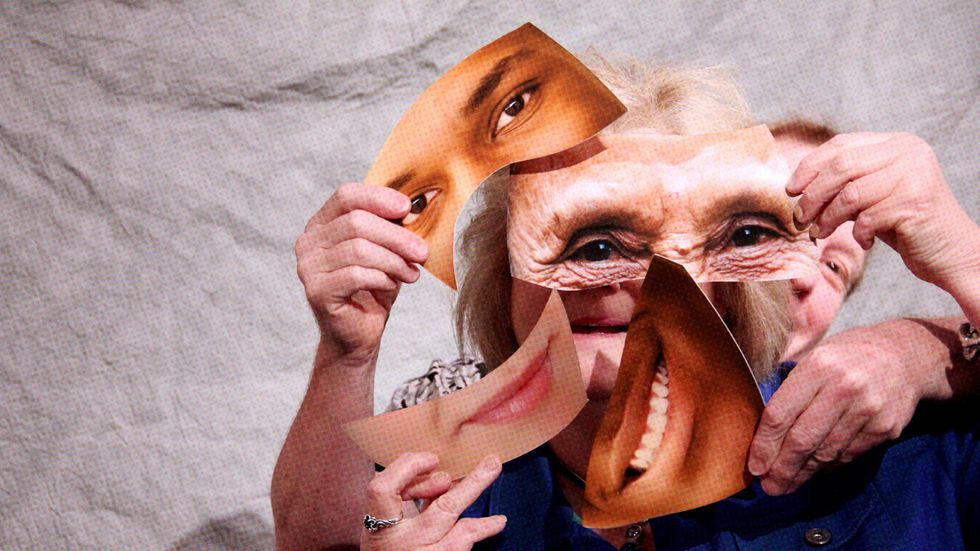As a minority in a traditionally white fraternity at the University of Maryland, I am more of an anomaly than I would care to be.
I came to feel this way when being asked, “Why did you join a white fraternity?” -- which after cautious prodding, usually translates into, “What is it like being a black guy in a white fraternity?” -- became the leading reaction to me showing my letters.
Although I cannot speak for all minorities in Greek Life here at Maryland; I believe that my experiences, so far, are no more tinged by race and ethnicity than those of daily student life. As to why I joined a predominately white fraternity, well, I made the decision to join an organization that reflected my values, beliefs and character; the ethnic composition of its members was never a factor. And I realize now that, in doing so, I became part of a society filled with people I would not ordinarily have had the chance to meet, enriching me in ways a fraternity consisting of people more ethnically similar to me could not.
Of course, like in any situation where one is a minority, there are, and will continue to be, plenty of uncomfortable situations, but the bonds of brotherhood have been strong enough that forgiveness and education have neutralized most issues.
That is my experience with diversity in Greek Life, now what's yours?
This question leads me to my main point; I believe that Greek Life is a fantastic way to help spread acceptance and understanding, however, we as students do not make enough effort to acknowledge this as a potential part of our Greek experience, creating situations that can lead to intolerance (read: University of Oklahoma's SAE chapter, UA's Tri Delta, Chi O and AGD, etc). Issues regarding integration are too often swept under the rug and forgotten, which for UMD students is especially sad, considering we attend such a diverse and international institution.
In my time as a brother, I have come to embrace any and all questions about my decision because it gives me an opportunity to talk about the lack of mixing on our campus and show people that ethnic, racial and cultural connections aren’t the only ways we can form strong, long lasting friendships.
I believe that others should do the same and openly (and honestly) discuss discrimination and integration in Greek Life more often, using all platforms available. This would go a long way in making Greek Life more inclusive and accessible to everyone, not mention helping keep us off the nightly news.
Regardless of whether someone's experience is positive or negative, dialogue on the issue is a great way to demystify and improve relations between students.
With regard to predominately UMD's white fraternities in particular, a stigma still exists about the acceptance and treatment of minorities in their chapters, largely due to the behavior of other fraternities around the country (Seriously, I dare you to watch that SAE video and tell me it does the majority of fraternities any justice), perpetuating the lack of integration in our own Greek community.
This is not to say that exclusionary and discriminatory practices do not still exist in some corners of Greek Life (we’ve all heard rumors about certain on campus fraternities purposefully denying people admission for nefarious reasons), but rather, they may play less of a defining role in the composition of a fraternity than the expectation of being discriminated against does.
This implies that because many students interested in joining will not even consider an organization that does not reflect their own ethnic background, race, sexual orientation and/or religious background, we cannot know for sure if the lack of integration in Greek Life is caused exclusively by ethnocentric practices.
So until we put more effort into painting a true picture of Greek Life and moving out of our comfort zones, we may always be stuck with the idea that, even in this day and age, discrimination is still what divides people in Greek Life.
Silence regarding issues of diversity do not do our Greek Life’s potential for breaking down social barriers any justice, meaning that we, as Greek and non-Greek students, need to open up and talk about our experiences with diversity (negative or positive) whenever we can, be it using social media, during rush or in casual conversation. Studies show that a more integrated society is a more accepting and open one, so efforts to reach out to and attract members of different walks of life should also become the norm, as should the idea that ethnic and racial congruence is not the only factor in creating strong friendships.



















